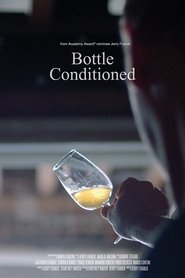Seattle International Film Festival 2023: Film #24
I'm a huge, confirmed fan of Trappist and other Belgian and Dutch beers made in a 'heritage' style, so I was almost the perfect audience for this documentary. But I ended up leaving the theatre a little disappointed by the result. If I were being grossly unfair, I would summarise it by saying that it felt like a well-produced version of the sanitised 'History' pages from the websites from each of the main lambic breweries, conveniently released to coincide with their recent expansions as a kind of precautionary marketing exercise against claims they are 'selling out'.
Now, this is clearly not really true, but it's a tempting conclusion given that the documentary seemed to be disinterested in really grappling with some of the difficult political, historical and economic questions that relate to lambic beers in anything but the most perfunctory manner, and was much keener on featuring humanising and 'artisan' shots of the brewers themselves sampling the beer straight from the barrels.
And when it did delve into the history of the industry, I'm not even sure it got it entirely right. I'll be the first in the queue to decry the Americanisation of our global culture, but it was careless of the documentary to let the implication stand that it was the post-War import of Coca-Cola that singularly ruined French beer. The film armours itself against the immediate riposte that this import was driven by domestic demand (as in, if the claim is true, it must have been the French themselves who rejected lambic and bought Coca-Cola instead) by claiming, albeit poetically, that Coke is "addictive". In reality, whilst the period after Second World War was a turning point in the industrialisation of France, this was a process that was already well in hand, even if it started long after a similar irreversible process in England. Even the war itself was more of a factor than any post-war import of US cultural products. As Robert Paxton writes in majesterial Vichy France: Old Guard and New Order, 1940-1944 (1972):
The occupation years moved France decisively away from their vision of France: balanced, rural, personal. For a variety of reasons, conscious and unconscious, Vichy moved France significantly toward the technicians’ vision: urban, efficient, productive, planned, and impersonal.
Perhaps this documentary tells us more about what we want 'France' to be; a redoubt against the hyperglobalisation experienced between 1990—2020s, where 'artisans' are still making 'authentic' products by-hand in a heritage, organic style.
But this is just one example of social trends that was sketched only thin e most casual manner. Just to begin with, I would have loved more about the labour questions related to making this style of beers. I don't for a second refer to precisely how lambic is made in a chemical or biological sense, but rather that there were a number of enigmatic references to volunteer work that were never followed up; a curious omission given that the owners of these breweries are now obviously rather wealthy. To put it bluntly, who actually sweats over making this kind of beer that can sell for $10,000, and what are they actaully paid for it? Equally unexamined, especially for a showing at the progressively-oriented Seattle International Film Festival, were questions of representation in this male-dominated sub-industry. Saying all that, though, it was difficult for the film not to capture some of the, err, interpersonal and relationship dynamic of Raf Souvereyns, the owner-operator of Brouwerij Bokke. The facial expressions of Raf's partner alone imply that a parallel story of this industry remains yet to be told.

